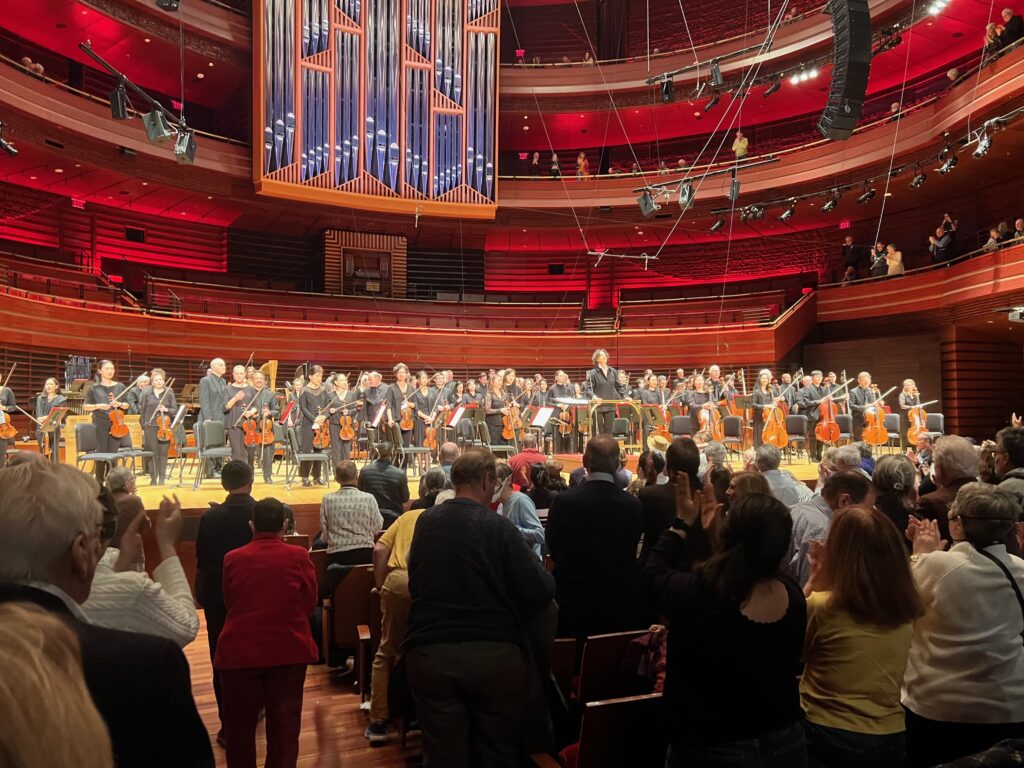THE HANGOVER REPORT – Nathalie Stutzmann leads the great PHILADELPHIA ORCHESTRA in playing Mazzoli, Schumann, and Shostakovich
- By drediman
- March 31, 2025
- No Comments

This past weekend, I ventured down to Philadelphia for a few days, during which time I had the great pleasure of attending a concert by the great Philadelphia Orchestra at their home base. It was my first time at the Marian Anderson Hall (formerly the Verizon Hall) at the invitingly modern Kimmel Center for the Performing Arts, and I was impressed not only by its comfort and accessibility, but more importantly by its superb acoustics, which showed off the ensemble’s trademark “Philadelphia Sound” by affording it an enveloping immediacy that was in welcome contrast to the sharp, distancing — albeit balanced — sonic quality I’m accustomed to at both Geffen Hall and Carnegie Hall.
At the helm of the concert was Nathalie Stutzmann, the music director of the Atlanta Symphony, who I recently heard conduct a “Ring Without Words” for the New York Philharmonic. Her outing with the Philadelphia forces was a huge improvement and was comprised of eclectic works by Mazzoli, Schumann, and Shostakovich. Kicking things off was Orpheus Undone from 2019, Missy Mazzoli’s glimmering symphonic riff on the famous Orpheus mythology. Unfolding in two intertwined parts, the piece plays with the perception of time and the notion of inevitability, focusing insightfully on two pivotal moments of the myth in which to create dimensions. Then came Schumann’s Cello Concerto led by French soloist Edgar Moreau, who successfully created an intimate and comfortable dialogue with the orchestra while diving headlong into the swirling and unsettled emotions of the German composer’s densely romantic composition.
The concert concluded with Shostakovich’s Fifth, one of the Russian composer’s most recognizable symphonies, which required nearly all of the orchestra’s considerable resources. Throughout, the ensemble’s glowing and refined strings — for which the orchestra is widely renowned — were in full evidence, and was particularly warm and luxurious in the largo movement (the third movement) and shimmering and undaunted in the allegro non troppo finale. While Stutzmann forewent some opportunities to bring out the symphony’s audacious character, she produced a balanced and steady reading that gave the piece a sense of unity and overall shape and momentum.
RECOMMENDED
THE PHILADELPHIA ORCHESTRA
Classical Music
Marian Anderson Hall at the Kimmel Center for the Performing Arts
2 hours (with one intermission)
Closed

 Copyright © 2025
Copyright © 2025
Leave a Reply